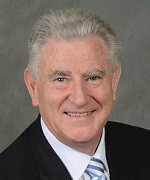Education pathways for risk advisers should be different than that of other financial advisers according to Synchron Director Don Trapnell, who has written to the Federal Government seeking a separation within proposed professional standards legislation.

Trapnell said it was the group’s ‘long-held belief’ that the education and training of financial advice practitioners should be separate according to different disciplines and the current Government position places financial planners and risk writers in the same discipline.
“Our letter draws a parallel between the GP and the dentist; they both have to have a basic knowledge of medicine, but then they need to go into their own areas of expertise. You wouldn’t employ a GP to perform a root canal, so why should they need to know how to do one?”
The move builds on Trapnell’s statement in December that not only should risk advisers have a speciality education stream related specifically to life insurance, they should also have any existing knowledge and experience within the life insurance sector formally recognised.
“Financial advisers should be able to elect to study a specialist stream, just as students of any discipline can choose to specialize in a particular area. In the case of risk specialists, this would of course mean specializing in life insurance,” Trapnell said.
According to Trapnell forcing experience advisers to requalify under the proposed legislation would lead to the departure of many of those advisers.
“We have serious concerns in relation to the brain drain that could occur if the proposed reforms are allowed to continue forward. There are very senior, very respected advisers within our Synchron group, including myself, who despite their many years of experience and varied qualifications will be forced to undertake a university degree in order to continue practicing.”
“I have almost 50 years experience as a risk adviser and am regarded as an expert in my field, however I don’t have a Diploma of Financial Planning, because I am not a financial planner, nor do I have a financial planning university degree.”
“Like many other experienced risk advisers, I hold formal life insurance qualifications, including Certified Insurance Professional by ANZIIF. Given my life insurance qualifications, level of experience and expertise, why should I and risk advisers like me have to re-train? There needs to be a more practical pathway established for existing advisers,” Trapnell said.
This week’s RiskInfo Poll: Different Educational Requirements for Risk Advisers?




A better analogue would have been a GP and a heart specialist. Both have the same basic training, but on chose to specialise. You can’t be a risk specialist with out knowing the fundamentals of financial planning.
Before I get howled down, I derive 80% of my income from risk.
Herein lies the challenge Chris. To be a heart specialist, you must first be a general practitioner and both are the same discipline. If you wish to compare specialities, then the correct comparison is that of a heart surgeon and an orthodontist, or a medical general practitioner with a dentist general practitioner. Both have to have a common basic medical background, and both need to be effectively general practitioners (a dentist is a general practitioner of the dental profession) but the orthodontist then specialises in a totally different discipline as compared to the heart specialist. An orthodontist needs to know as much about coronary bypass surgery as a heart specialist needs to know about full molar implant and as a risk specialist needs to know about a transition to retirement strategy. They each need to have a basic understanding of what the other disciplines do, but do not need to have speciality training in matters outside of their own discipline.
@Chris, you are correct.
How many Risk writers cross over into Financial Planning by put Risk insurance cover in Superannuation.
There are some who don’t even know that there’s a 21.5% tax Liability on TPD payouts written in superannuation up to the age of 55. Why is that important, well for a Dental Surgeon with $2m of TPD cover in super, it will reduce his payout should there be a payout before age 55 by $430,000.
Mr Trapnell, your comparison lacks credibility. Both a a GP and a Dental Surgeon, administer injections, recommend analgesics/pain relievers, so a knowledge of how to do these including pharmacy is a logical requirement.
Both Financial Planners and Risk writers are required to know their client and to also know their product.
I’m willing to bet that better than 50.0% of the Risk writers have never read or know all the conditions of the products they promote. Do not know what their product may or may not have a competitive advantage over someone else.
Why,….. well that’s easy, because many promote (sell) a product based on premium. Few can distinguish benefits from one product over another and often rely on flawed industry researchers that most of the time are wrong with their comparisons/ratings.
Now you seem to think they should be treated differently to a Financial Planner ?
They are playing with peoples money and their livelihoods, …. you couldn’t be more wrong.
By the way Don, I ended up in the Life Insurance Industry in a Senior sales management position, lectured to Life agents under the old LUA, I’m a graduate of LIMRA, but like all those who want to survive in the Financial Services sector, decided to be better educated and went back to University to study Tax Law and get my CFP.
Welcome to the new world.
Comments are closed.